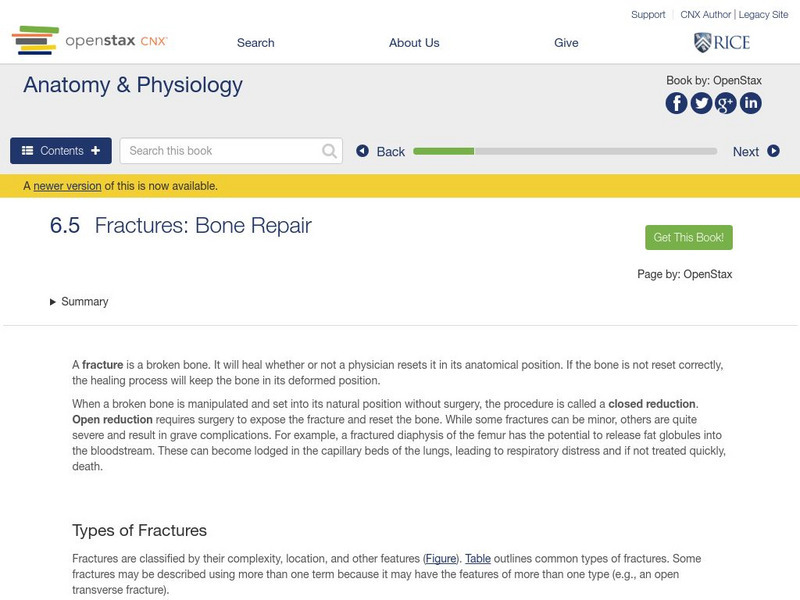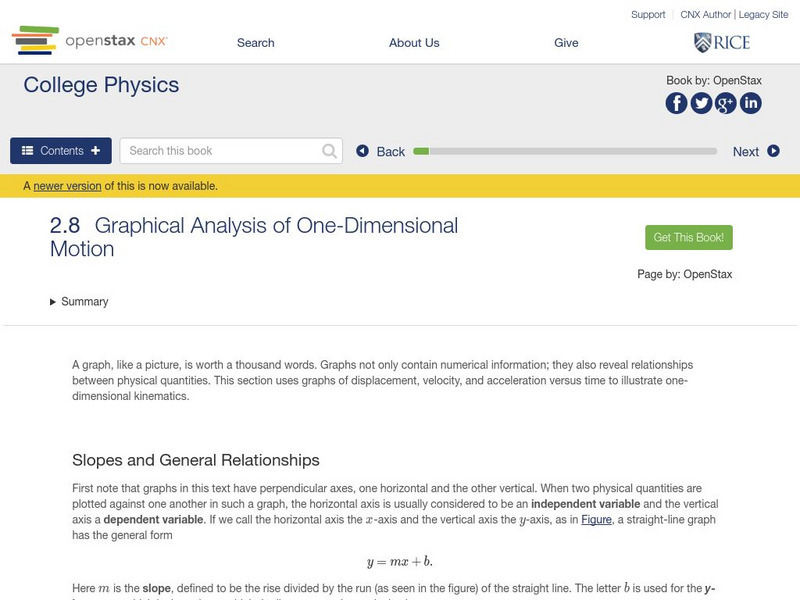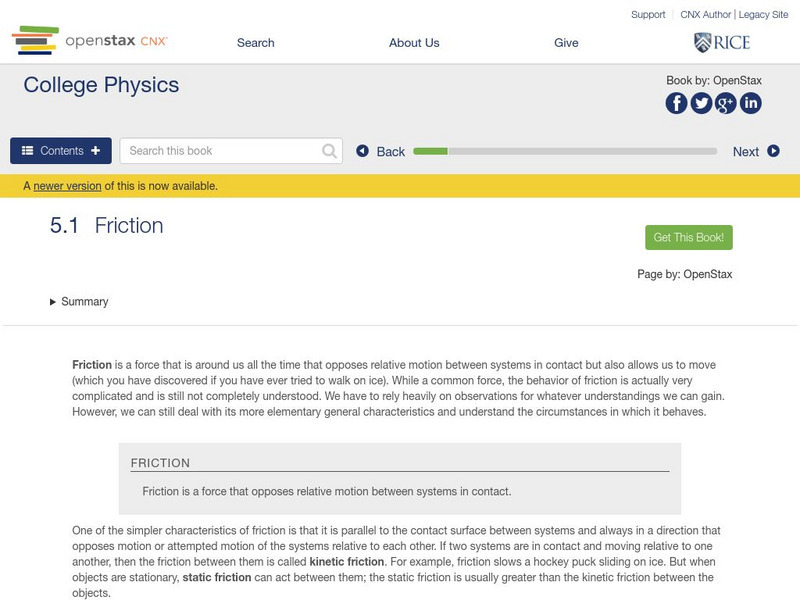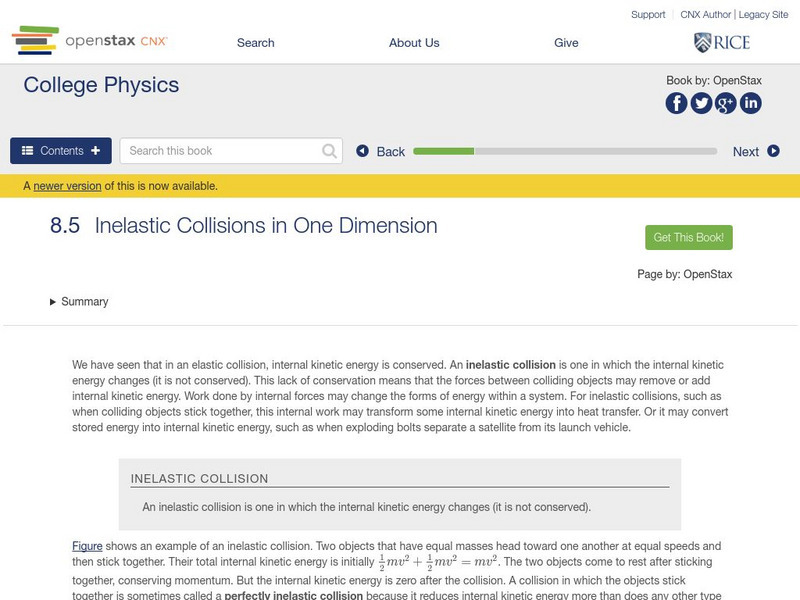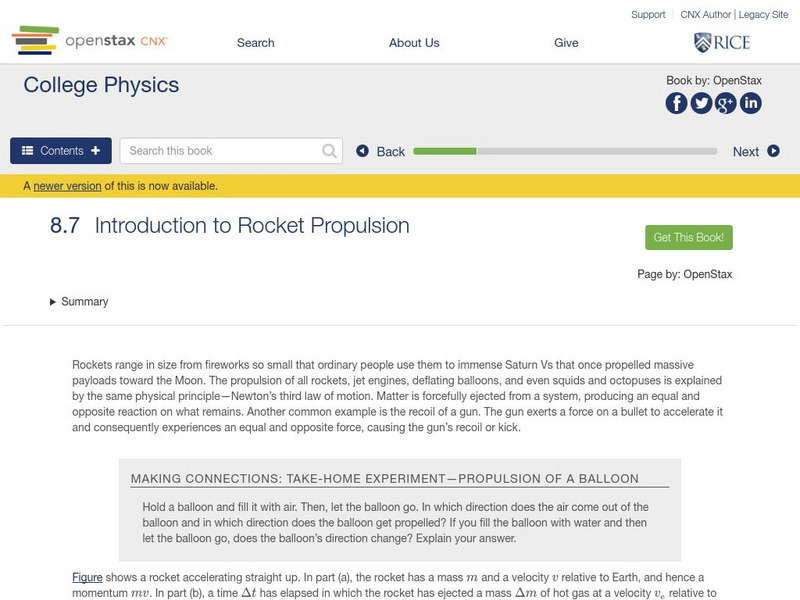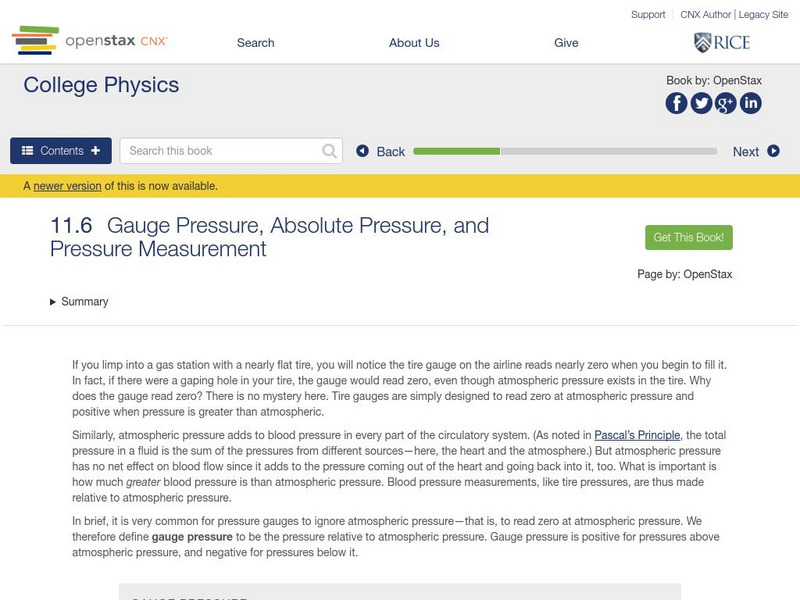OpenStax
Open Stax: Franklin Roosevelt and the New Deal 1932 1941: The Second New Deal
Examines the legislation enacted under Roosevelt's Second New Deal, and how the New Deal as a whole affected women, African Americans, and Native Americans.
OpenStax
Open Stax: Fighting the Good Fight in World War Ii 1941 1945: The Home Front
Discusses how America prepared for war, the impact on the work force in the United States, how women and other civilians supported the war effort, and how the war affected race relations.
OpenStax
Open Stax: Fighting the Good Fight in Wwii 1941 1945: Victory in European Theater
Examines the diplomatic negotiations among the Big Three leaders - Roosevelt, Churchill and Stalin - during World War II. Discusses the invasion of North Africa, the invasion of Europe, the shock of seeing the impact of the Holocaust...
OpenStax
Open Stax: Functions of Human Life
The different organ systems each have different functions and therefore unique roles to perform in physiology. These many functions can be summarized in terms of a few that we might consider definitive of human life. Learn here about the...
OpenStax
Open Stax: Homeostasis
This section of a textbook provides information regarding human homeostasis, a process that has the body continuously monitor its internal conditions. Includes a linked video.
OpenStax
Open Stax: Inorganic Compounds
Learn here about inorganic compounds, substances that do not contain both carbon and hydrogen, and how they are essential to human functioning.
OpenStax
Open Stax: Layers of the Skin
Learn here about skin. Skin is made of multiple layers of cells and tissues, which are held to underlying structures by connective tissue.
OpenStax
Open Stax: Anatomy and Physiology: Functions of the Integumentary System
Learn here all about how the integumentary system functions: such as protecting the body from invasion by microorganisms, chemicals, and other environmental factors; preventing dehydration; acting as a sensory organ; modulating body...
OpenStax
Open Stax: Fractures and Bone Repair
This site provides a plethora of information regarding fractures and bone repair.
OpenStax
Open Stax: Graphical Analysis of One Dimensional Motion
In the following interactive module students will describe a straight-line graph in terms of its slope and y-intercept. They will determine average velocity or instantaneous velocity from a graph of position vs. time.
OpenStax
Open Stax: Kinematics in Two Dimensions: An Introduction
In this interactive module, students will observe that motion in two dimensions consists of horizontal and vertical components. They will understand the independence of horizontal and vertical vectors in two-dimensional motion.
OpenStax
Open Stax: Further Applications of Newton's Laws of Motion
In the following interactive students will begin to apply problem-solving techniques to solve for quantities in more complex systems of forces. They will also integrate concepts from kinematics to solve problems using Newton's laws of...
OpenStax
Open Stax: Friction
In the following interactive students will begin to discuss the general characteristics of friction and describe the various types of it. They will also calculate the magnitude of static and kinetic friction.
OpenStax
Open Stax: Fictitious Forces and Non Inertial Frames: The Coriolis Force
In the following interactive students will begin to discuss the inertial frame of reference and the non-inertial frame of reference. They will also describe the effects of the Coriolis force.
OpenStax
Open Stax: Kinetic Energy and the Work Energy Theorem
In the following interactive students will begin to explain work as a transfer of energy and net work as the work done by the net force. They will also explain and apply the work-energy theorem.
OpenStax
Open Stax: Linear Momentum and Force: Linear Momentum
From a chapter on Linear Momentum and Collisions in a Physics textbook. This section of the chapter covers linear momentum, how momentum and force are related, how momentum fits into Newton's second law of motion, and how to calculate...
OpenStax
Open Stax: Linear Momentum and Collisions: Impulse
From a chapter on Linear Momentum and Collisions in a Physics textbook. This section of the chapter explains that impulse is the same as a change in momentum, and what role it has in daily life. It then describes how to calculate the...
OpenStax
Open Stax: Inelastic Collisions in One Dimension
From a chapter on Linear Momentum and Collisions in a Physics textbook. This section of the chapter explains what happens during a one-dimensional inelastic collision, what a perfectly inelastic collision is, collisions in sports, and...
OpenStax
Open Stax: Introduction to Rocket Propulsion
From a chapter on Linear Momentum and Collisions in a Physics textbook. This section of the chapter discusses Newton's third law of motion in the context of rocket and jet engine propulsion. Students learn how to calculate a rocket's...
OpenStax
Open Stax: Forces and Torques in Muscles and Joints
From a chapter on Statics and Torque in a Physics textbook. This section of the chapter provides an in-depth discussion of forces and torque in the human body. We learn about muscular force, the importance of posture in preventing back...
OpenStax
Open Stax: Kinematics of Rotational Motion
From a chapter on Rotational Motion and Angular Momentum in a Physics textbook. This section of the chapter discusses the kinematics of rotational motion, equations to use, and strategies for solving problems in rotational kinematics....
OpenStax
Open Stax: Gauge Pressure, Absolute Pressure, and Pressure Measurement
From a chapter on Fluid Statics in a Physics textbook. This section of the chapter looks at the definitions of gauge pressure and absolute pressure, and how barometers work. It also discusses how blood pressure is measured. Includes...
OpenStax
Open Stax: Heat Transfer Methods
In this section of the textbook, learn about the methods of heat transfer: conduction, convection, and radiation. Book can be downloaded.
OpenStax
Open Stax: Energy Flow Through Ecosystems
Understand how organisms acquire energy and how that energy is passed from one organism to another through food webs and their constituent food chains.









